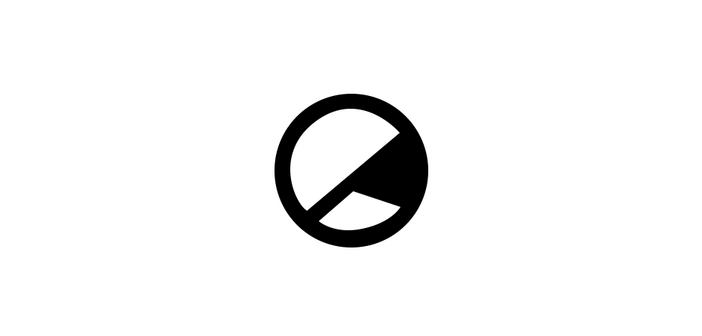Denis Villenueve faithfully translates Herbert's novel to the screen with vast spectacle and awe-inspiring grandeur.
-
9
After years of telling people “Dune’s going to be great” and hearing back “why, what’s happening in June?”, the hotly anticipated adaptation of Frank Herbert’s legendary 1965 sci-fi novel has finally landed. Dune, as in the sand banks and definitely not the sixth month of the year, is a titanic, elemental slab of next-level filmmaking that simply must be seen in a cinema.
Denis Villeneuve has made a name for himself as one of the 2010s’ defining filmmakers. His smouldering thrillers Prisoners and Sicario combined chilling tension with striking visuals, paving the way for his odyssey into science-fiction. His 2016 film Arrival was viewed as a warm-up gig before making the stunning Blade Runner 2049, but the reality is that 2049 was a warm-up gig for the interplanetary Dune.
The elephant in the room (or sandworm in the desert?) is that this is ‘Part One’ of, good box-office results depending, a two-part adaptation of Herbert’s esteemed, dense novel. The plot revolves around Timotheé Chalamet’s Paul Atreides, the son of the Duke Leto Atreides (Oscar Isaac). House Atreides is a powerful presence in the space world of the future and Leto is assigned by the Emperor to become the steward of the desert planet Arrakis, replacing the Machiavellian House Harkonnen’s reign there. Arrakis is a hostile, barely hospitable planet that is essential to the galaxy due to being the home for mining ‘spice’; a priceless, drug-like substance that is used for both intergalactic travel and extension of human life. Paul is plagued by prophetic visions of his involvement with the Fremen, the native inhabitants of the desert, tying his move to Arrakis with the beginning of a potentially galaxy-changing destiny.

Legendary Pictures
For those unfamiliar with the lore, ecology, and political machinations of Herbert’s world, the first hour of Dune can be close to impenetrable. It’s littered with dense nouns like the Bene Gesserit, the Sardaukers and the Landsraad; this kind of filmmaking recalls The Fellowship of the Ring as an introductory film to a new cinematic universe, one that is so complexly conceived that the screenplay moves thick and fast through the mythology, geography, and inter-personal relations. It can be daunting. One drawback of Dune’s ‘part-one’ structure, which roughly adapts the first half of the novel, is that it feels like a first act going into a second act and then the credits roll. The Fellowship of the Ring was similarly the first instalment of a multi-part story but was still paced around its own satisfying three-act structure. The way people feel towards Dune will be ultimately tied to whether the second half gets made. If not, then audiences will be cursed with cinematic blue-balls by never seeing the resolution.
One of the hardest tasks Villeneuve had ahead of him was this: how does one make a fresh science-fiction epic that comes years after all the other science-fiction and fantasy films that were originally influenced by Herbert’s novel? It’s inescapable to not think of Jedi mind tricks, Tatooine, Houses Stark and Lannister and Tremors. Modern audiences might find the film derivative as opposed to the highly influential work that it is based on. However, Villeneuve fills the screen with invigorating machines and vehicles, spellbinding sets and a sense of scale that even a cinema screen struggles doing justice to. The behemoth sandworms native to Arrakis are integral to two startling set-pieces, whilst the dragonfly-esque ornicopters and Jason Momoa’s charismatic warrior Duncan Idaho also dish out some muscular action beats. All of this is scored by one of Hans Zimmer’s best works in years, harnessing vocals, bagpipes and the usual electric implements to create a supreme audio-visual experience.
Replacing usual collaborator Roger Deakins with director of photography Greig Fraser, Villieneuve sculpts a more muted and darker colour palette than expected; the deserts of Jordan and Abu Dhabi are grainier than the bright oranges of Mad Max: Fury Road, creating an aesthetic as sober as the steely tone. It’s unmistakable that Dune is the sandiest film since Lawrence of Arabia.
The A-list ensemble has someone for everyone: indie darling Tim Chalamet is on fine leading-man form, Rebecca Ferguson, Sharon Duncan-Brewster and Oscar Isaac are solid and Josh Brolin and Momoa give it a kick of testosterone. But it’s Stellan Skarsgaard as the Baron Vladimir Harkonnen who leaves the biggest impression: a hulking frame that merges Jabba the Hutt, Immortan Joe and a suit-less Darth Vader into a sinister creep of a villain. If the film is as emotionally distant as the novel is, the variety of characters are still deeply engaging to watch, costumed in elaborate gear that further seals Dune’s successes with the technical categories in awards season.
Dune is in U.K. cinemas from the 21st October with a 12A certificate. Watch the trailer below:




